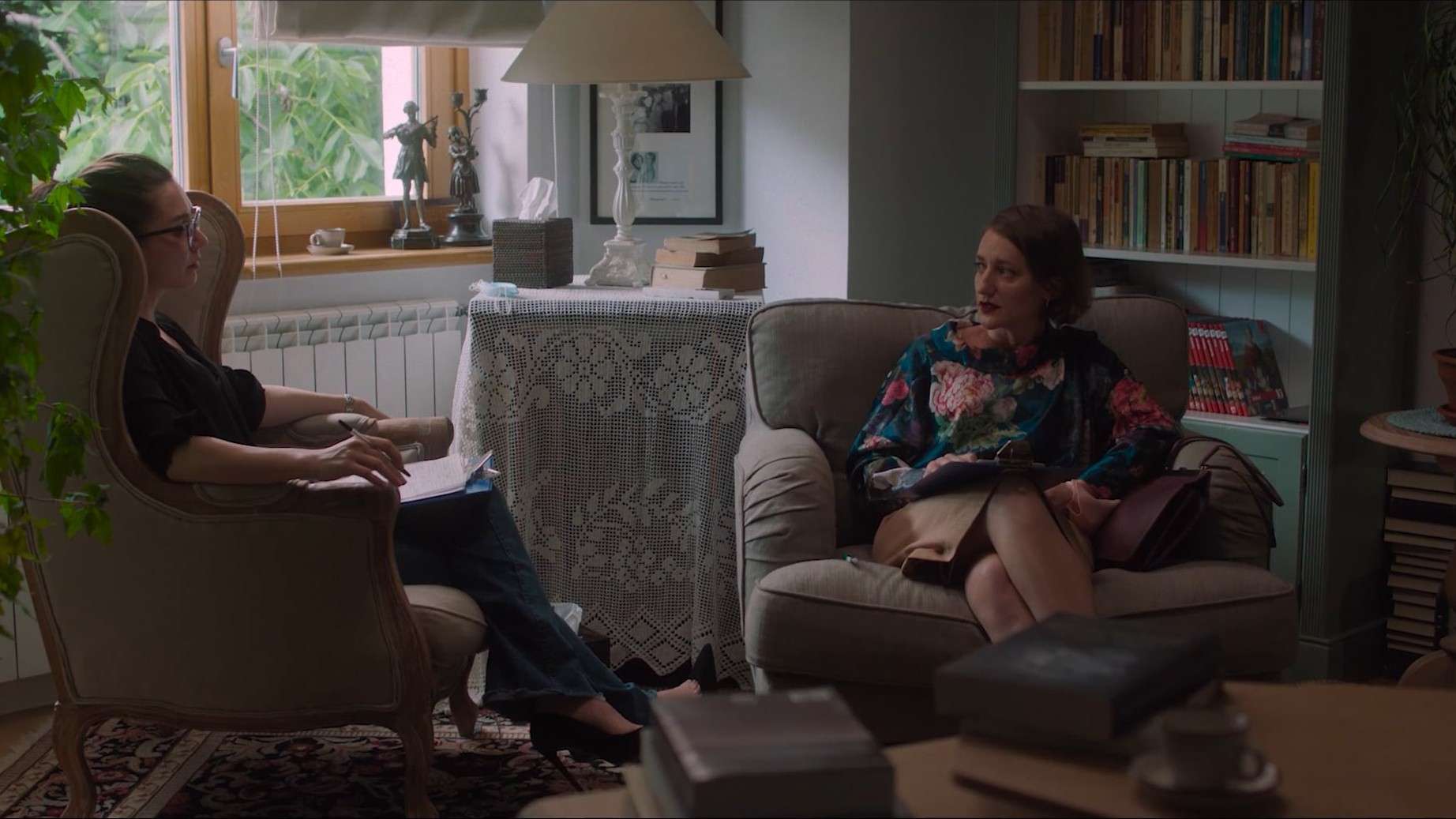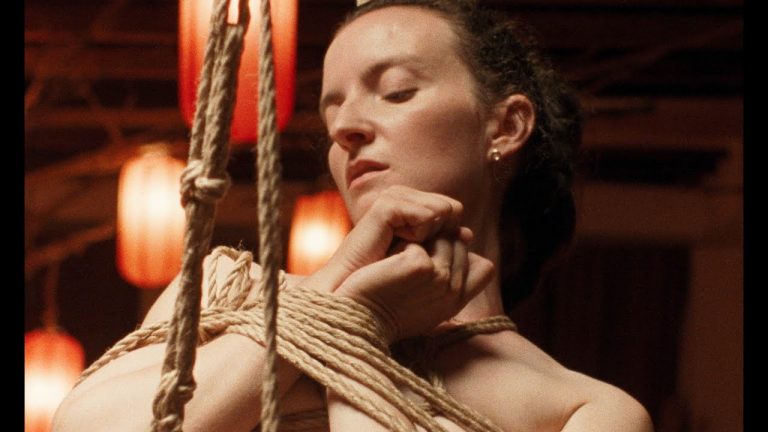Christi Puiu in “MMXX,” a fascinatingly structured feature, holds a mirror as to how society works when there is nowhere to go. The film’s structure of four stories is interconnected by their allegiances to the Pandemic and how it restructured society already fragmented by violent upheavals and social abuses. Given that the first unit of society is always family, Puiu depicts relationships in as tight spaces as possible and how that fragments relationships as people process the despair and struggles of the pandemic. But true to his oeuvre, Puiu does not deflect away from the problems that plague his society, and the master does through his crisp, long takes, which arrest the audience’s attention.
In “MMXX,” Puiu’s gaze in the first story is that of a tableaux. The no-cut, continuous forty-plus minute interaction between a patient and a therapist is one of a master well versed in his craft. The uncomfortable silences followed by conversations that bring forth self-indulgences and the self-involved society are ingenious. The character’s self-aggrandizing beliefs and behavior reflect the times we inhabit. Moreover, the identity of the self is inflated in ways unimaginable. Puiu’s reflective and unwavering approach puts the audience to shame, yet they are not able to look away. The audience is forced to watch this interaction. Like a person afraid to look at a horror film, the only way they can watch it is through the gaps in their fingers while covering their eyes; those fingers mask the shame in this scenario. The characters are also a representation of our society and what we were when people were dying all around us and migrant laborers perished during their arduous journey to be with their families while we were busy making Dalgona coffee and upgrading our cooking skills.
In the second story, the therapist from the first story appears, and her brother is shot in complete tracking shots inside a small, intimate space of a kitchen. Throughout the film’s entire duration, Puiu does not use anything other than a medium shot and does not get too close to the character. A level of non-immersion is required when the audience needs to reflect and observe themselves through the characters represented in this section. The interaction between the brother and the sister is interesting as the brother is bothered by nothing other than his supposed birthday. When his mother calls to tell him that his dad did not find the rum he required to make the cake, he asks him to go out and get it again, barely bothered that the Pandemic was raging outside. When the brother appears in the first film, the relationship is established as that of a brother leeching from his sister. This is well furthered in the second story.

In a sequence where the sister is trying to find out if they can find out whether a kid can be separated from the mother for 14 days due to COVID-19, the sister asks him to find out whether the lawyer who had helped them before can help out. Instead of getting on a call with his father, he starts making excuses as to whether the lawyer is actually good enough. The brother criticizes without being helpful or productive. Even her partner in the story is shown as dispassionate. When he is shown in the third story as a paramedic, this dispassion can be well understood due to the tremendous amount of pressure medics were under during this period. The third story delves into a conversation where there may be a hint of desolation and weariness with society. The conversation ensues between a friend and the paramedic from the second story. The friend, a Moldovan, came to Romania to be an actor but now works as an ambulance driver. He talks about his encounter with the wife of a Mafia and how he got away from it unscathed. The director does not fail to talk about the apparent Xenophobia that is abundant in Romania when he mentions the term “Mankurt,” which roughly translates to being a slave. The most poignant moment comes when the friend says that after the encounter, he had a chance encounter with the wife of the Mafia again, and he got scared, which made him feel small in ways unimaginable. The dizzying afterthought that men are out of their depth when it comes to dealing with situations that involve women as their counterparts is a telling sign of a decaying society.
Puiu’s understanding of his society is like that of a skilled artisan threading a needle. The fourth story talks about a detective whose colleague had killed himself in a very rural area rife with crime. He upholds the various human rights abuses and ensures that no horror is missing from the frames. Again, the kind of tracking shots in tight spaces makes sure that the audience feels constrained. The nonchalance in the language of the madame when she talks about human trafficking, is bone-chilling. The director’s vicious takedown of what his society is going through ensures the audience comprehends the uncomfortable truth. During the screening, audiences walked out in throngs, unable to tolerate the discomfiting nature of the story, particularly in one sequence where the madame talks about her own three-year-old son, whom she had sold off for prostitution and was killed for organs. The crying makes the scene into a macabre black comedy as the morality of society is called into question. The madame’s crying is not because she sold her son to prostitution but because he was killed for body parts.
The last image of “MMXX” is one of contemplation. This is a continuous image that binds the four stories together. The four images are bound by an understanding of human decay and how subjective morality is. As the image breaks off to a family walking in the distance, the shot typifies the transient nature of the human mind and memory. It also shows how soon we forget and move past the pain, even though the world has undergone a seismic shift with people being culled for our mismanagement of resources. The editing in “MMXX” also perfectly flows according to the story’s rhythm as the narrative keeps putting Puiu’s powerful aesthetic and hard-hitting commentary on society in the forefront while challenging traditional filmic expressions.







